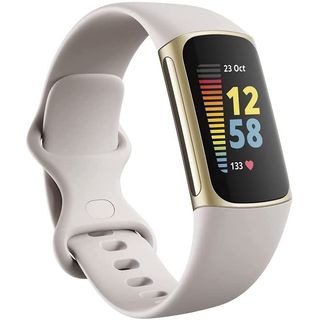The gut microbiome, a living community of microbes that resides in the digestive tract, appears to run on a 24-hour clock. This may be very important to our health, but scientists are only beginning to understand why. Early research suggests that microbes play a role in myriad bodily functions, from regulating sleep to breaking down medications.
Evidence suggests that in adults, the abundance of certain microbes in the gut fluctuates daily. In other words, this flow follows a circadian rhythmsimilar to the bodily processes that determine when we sleep and wake up.
A recent study found that bacteria in the guts of babies as young as 2 weeks old also have a circadian rhythm. The report, published in April in the journal Cellular host and microbeshowed that this rhythmicity increases with age.
The researchers found that the microbes maintain these day-night rhythms even when removed from the body and grown in the lab, suggesting that their rhythm is intrinsically regulated and therefore not dictated solely by factors in the gut itself.
Related: Scientists May Have Found the Missing Link Between Heart Disease and Sleep Disorders
It’s unclear why gut microbes behave this way, but their cyclical behavior may somehow help them colonize the human gut, the study authors theorize.
“Everything in biology has a reason,” which often refers to the question of whether a given trait would help an organism survive, Dirk Hallerco-senior author of the study and professor of nutrition and immunology at the Technical University of Munich, told Live Science. When it comes to the gut microbiome, the microbial community has evolved alongside the human body, becoming a key feature of our physiology.
The microbiome is beneficial for humans in several ways. For example, it helps protect us from infections by regulating the immune system and metabolizes the parts of our food that we can’t easily digest. The gut, in turn, provides microbes with a safe, warm place to live. So there’s “extremely strong competition” among microbes for space in the gut, Haller said, and that competition drives microbes to evolve.
By this logic, gut microbes likely have a circadian rhythm because it has an evolutionary advantage, both for the microbes and for their human hosts. Haller and colleagues’ recent study sheds some light on when these bacterial rhythms might start to appear in a given person’s body, but how might this circadian rhythm affect our health?
“This is the most open question,” Vincent Cassonea biology professor at the University of Kentucky who was not involved in the new study, told Live Science.

Sleep, illness and medication
Some previous research has probed the circadian clocks of human gut bacteria, such as Klebsiella aerogenes And Bacillus subtilis. However, so far, most work in this area has focused on rodent gut microbiomes. 20% of microbes in the mouse intestine are known to have a circadian rhythm, showing constant fluctuations in their abundance at different times of the day. These microbes include bacteria from the orders Clostridiales, Lactobacillales, and Bacteroidales, all of which are also found in the humanly good.
These bacteria are called “oscillators,” he said. Dr. Eugene Changprofessor of medicine at the University of Chicago who was not involved in the new research. Most produce byproduct molecules, called metabolites, that are absorbed into the bloodstream and transported to other organs, including the brain, he told Live Science.
Once released into the blood, metabolites can Finfiltrate the host’s circadian networks and alter their function — for example, they might influence the pattern and strength of activation of so-called circadian clock genes, Chang said. Scientists have tried to disrupt this circadian dialogue in lab mice and found that it affects physiological processes, including metabolism And inflammation.
Some findings in mice suggest that byproducts made by bacteria in our own guts may influence our sleep-wake cycles. One of them, called butyric acid is produced when bacteria digest dietary fiber and has been shown promote sleep in mice. However, Further evidence is needed to see if the results are actually transposable to humans.
Related: 8 Common Sleep Myths Debunked
In a Study 2020 Haller and his colleagues found that out of more than 4,000 people, those with type 2 diabetes and obesity did not have the same daily variations in their gut microbiome as those without those diseases. This suggests that there is a potential link between circadian rhythms and the microbiome in metabolic diseases, but the reason is still unknown, Haller said.
The internal clocks that govern gut microbes, as well as those in host cells, all interact in complex ways and are also affected by external factors, such as when we eat, he said. Dr. Garret A. FitzGeraldprofessor of translational medicine and therapeutics at the University of Pennsylvania, who was not involved in the research. Theoretically, this “complex interplay” could be disrupted by diseases that affect the gut, he told Live Science in an email.
For example, if the cells lining the gut are damaged for some reason, it could influence how much of the breakdown products of drug metabolism end up in the bloodstream and affect other organs, such as the lungs, liver or brain, FitzGerald said. Our gut bacteria play a role in how drugs are broken down and therefore have a role to play in this chain reaction.
There is an emerging scientific discipline called chronopharmacology in which scientists study whether the timing of when you take a medicine can affect its safety and effectivenessIn addition to influencing individuals’ sleep-wake cycles, bacterial circadian rhythms may partly dictate how the body responds to a given drug.
Additionally, bacterial circadian rhythms can affect the resistance of bacteria to antibiotics. For example, research has shown that the concentration of antibiotics needed to kill certain bacteria, such as Staphylococcus aureuschanges to specific times of the day.
“Everyone tells us we need to take our medications at certain times of the day,” Cassone said. “Maybe the gut microbiome and the human host already know this: Certain times of day are best to get your vitamin B12, or your butyric acid for sleep or whatever,” he said.
Whether that’s true or not is “probably one of the big mysteries that I think will be solved fairly soon,” Cassone said.
Have you ever wondered why Some people build muscle more easily than others. Or why do freckles appear in the sun? Send us your questions about how the human body works to community@livescience.com with the subject line “Health Desk Q” and you may be able to see the answer to your question on the website!
Fitbit Charge 5

We’ve tested all the best fitness trackers and ranked the Fitbit Charge 5 as the best for sleep tracking. This surprisingly lightweight and compact smartwatch will provide you with a wide range of health stats to help you get a more restful night’s sleep. Read our full Fitbit Charge 5 review to find out more.